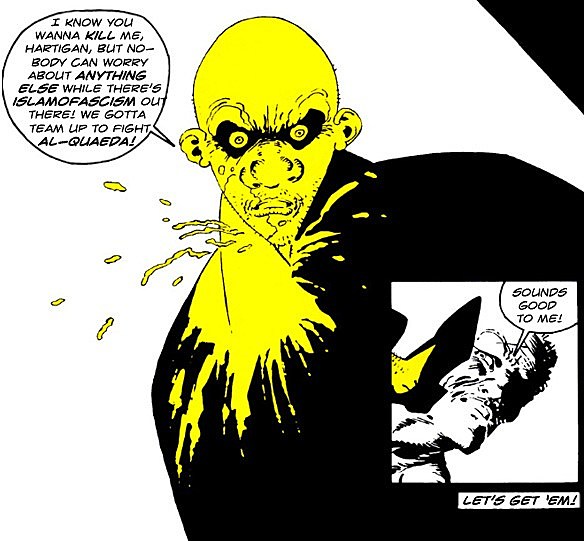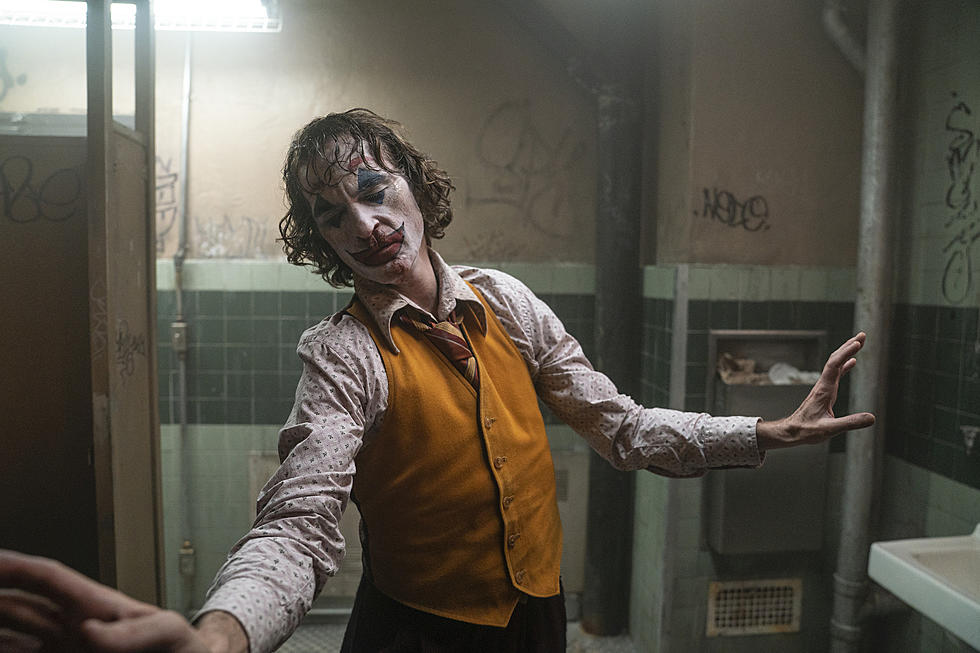
Frank Miller Was a Cranky Old Man All Along: A Retrospective

By now, you've almost certainly heard about the statements about the Occupy protests by legendary comic book creator and hat enthusiast Frank Miller, in which he referred to the protesters as "louts, thieves and rapists" and suggested that they "go back to your mommas' basements." They are undoubtedly pretty polarizing statements, but we here at ComicsAlliance have been a little perplexed by people saying that they were surprised by them. If you've been reading his comics closely over the years, you could spot this coming a mile away. That's why today, we've decided to take a look back at Miller's earlier works and identify the moments where these ideas begin to emerge.The panel above, for instance, from the incomparable Batman: Year One, seems to have taken on a new meaning in light of his recent statements. The same goes for a scene later on in the story, when Bruce Wayne (a rich kid who literally has a computer in his momma's basement) lets the corrupt powers of Gotham City know exactly where his focus is:

We see the same ideas cropping up in another famous panel from Miller's work on Batman. Most readers were so caught up in one small part of this exchange from All Star Batman and Robin the Boy Wonder #2 that they overlooked the other pieces that, in retrospect, were pretty revelatory:

Even in his most famous work on the character, the classic The Dark Knight Returns, the signs are there if you look closely. For instance, Batman's references to the reasons why he modified the Batmobile:

As Let's Be Friends Again writer Curt Franklin pointed out, Batman's speech to the youth of Gotham City's future now seems to have taken on an entirely new connotation:

It's not just in his Batman comics, though. Miller's recent statements even shed a whole new light on the narrative break in his epic of bare-chested man-stabbing, 300, which I'll admit seemed a little odd at the time:

And who could forget the shocking twist ending of Sin City: That Yellow Bastard? I'll admit that even as a huge fan of that comic, this one has always been more than a little perplexing for me, but once you step back to look at the pattern, it falls right into place:

In retrospect, that story sure did take a weird turn there at the end. Still one of my favorites, though!
So again, regardless of your feelings on the content of Miller's statements, whether it's disappointment or wholehearted agreement, you can't really say that it came as a shock. These are themes that have been a part of his work for years, and while his earlier work is often characterized as pitting a lone, morally righteous hero against an overwhelmingly powerful and corrupt entity -- occasionally even an actual corporation with unsavory practices -- the truth is right there for anyone to see in all of his comics.
Well, almost all of them. I'll be honest, I didn't see anything even remotely political in that new book, Holy Terror.
More From ComicsAlliance




![DC Unveils Covers And Solicitations For June’s Bat-Books [Exclusive]](http://townsquare.media/site/622/files/2017/03/Batbooks.png?w=980&q=75)
![All The Image Comics Announcements From Emerald City Comic Con [ECCC ’17]](http://townsquare.media/site/622/files/2017/03/Image-Featured.png?w=980&q=75)

![‘All Star Batman’ #8 Will Knock You Upside The Head With A Robot Flamingo [Preview]](http://townsquare.media/site/622/files/2017/02/ASBAR08.jpg?w=980&q=75)

